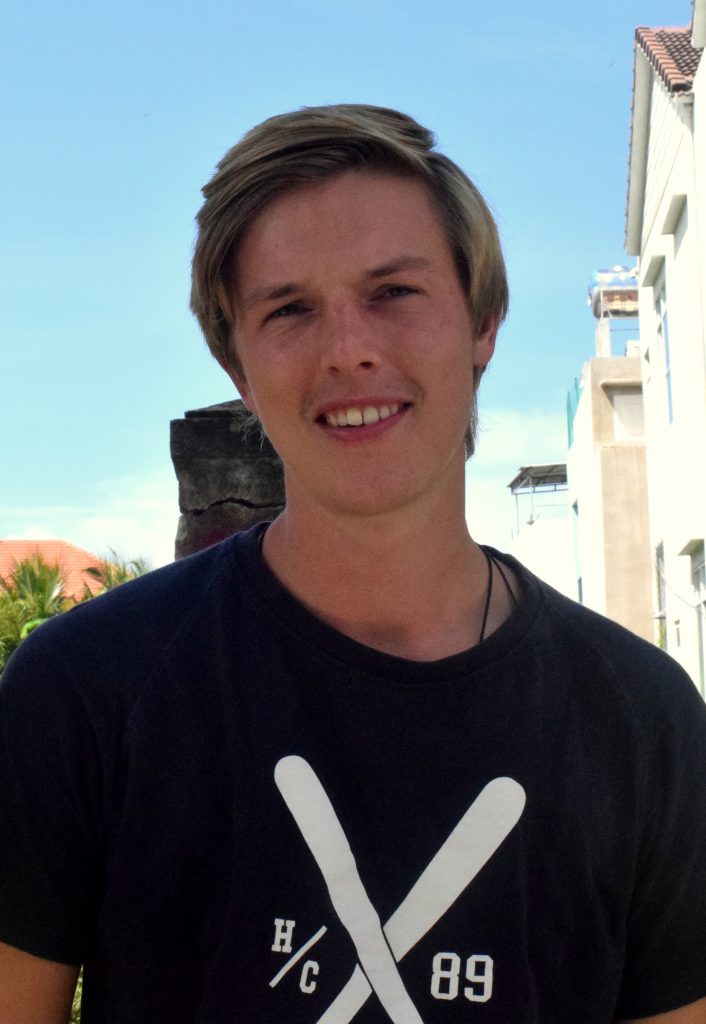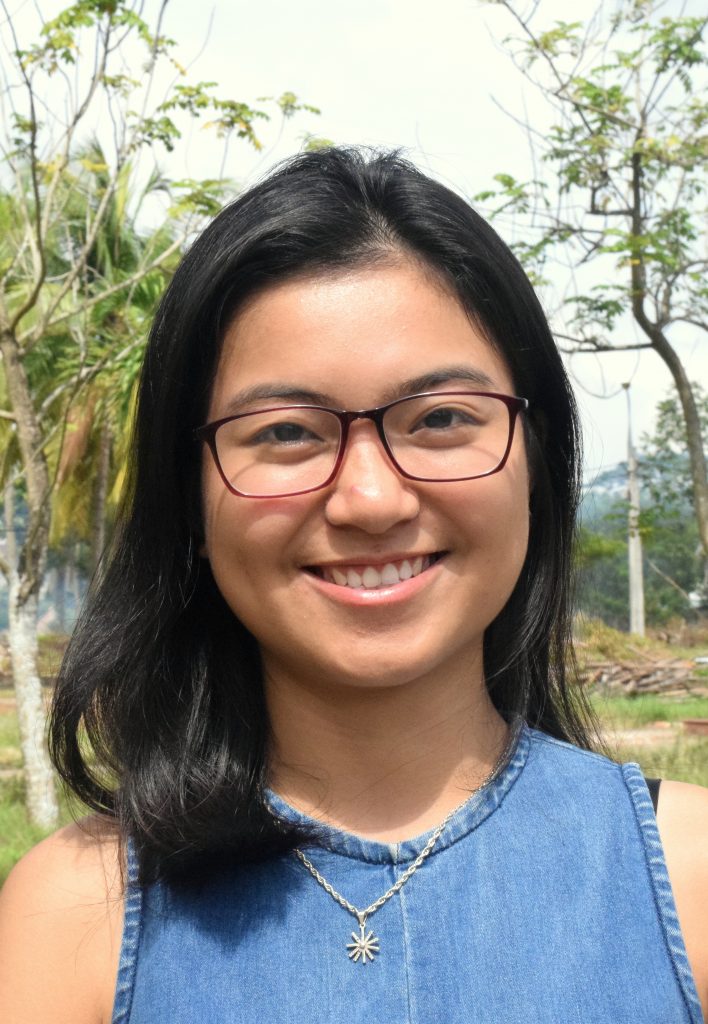
For this blogpost, I interviewed 5 people from our course and asked them about different aspects of their experiences in Vietnam. Let’s read and find out what these interesting humans have to say!
Lasse, 20, Norway
Every time I go to the market here in Vietnam and I go up and down on the market’s side I am naturally more inclined to go towards some sellers than others. And I have been wondering: Why is that the case? I just look at them, I don’t even need to look at the products but I look at the people selling them, and I know I want their food. And that’s truly something that I can’t explain. For instance, I always buy mangos from this woman, and it’s nothing but that expression in her eyes that tells me her mangoes will be better (laugh). I bought her mangos the first time around and she would never argue about the price or anything, she would just tell me the price. And you know, the price was good but that wasn’t the case why I came back. It was an expression in her eyes and her smile. It reached me in the sense that she cared about her customers more than the money that she got. She has an amputated arm, and the fact that she has that, I don’t know if it makes a difference or not because I can see she is still happy. And then I can go to other people and I go home and to other places and that smile and that expression in the eyes, you can still see it in some people, but not in everyone. You know, I think there’s something universal about humanity that exists within us all but we sometimes forget to exercise that. For instance, if you don’t exercise your arms then the muscle will not be activated. Same thing with the brain, right? All the time we go to school we keep exercising that muscle, the brain, keep trying to make it grow. But that universal thing that connects us all, it’s so abstract that we don’t pay attention to exercising it frequently enough.
Linh, 20, Vietnam
Since I am a student of Economics, most of what I have learned is about how to create profits, how to have more international trade partnerships to push economic collaboration among countries, how to make more deals and how to increase commercial productivity. It did not mention the side effects of economic development at all. And everything was counted and quantified through mathematics formulas. We would never look at the other side, like the human aspect of things. But thanks to this course, I now have a broader and clearer view of development because I know both its positive and negative characteristics. For example, I used to think that the 17 sustainable development goals are so holistic and inclusive of everything but now I see even that agenda is not free from criticism.
Herman, 21, Norway
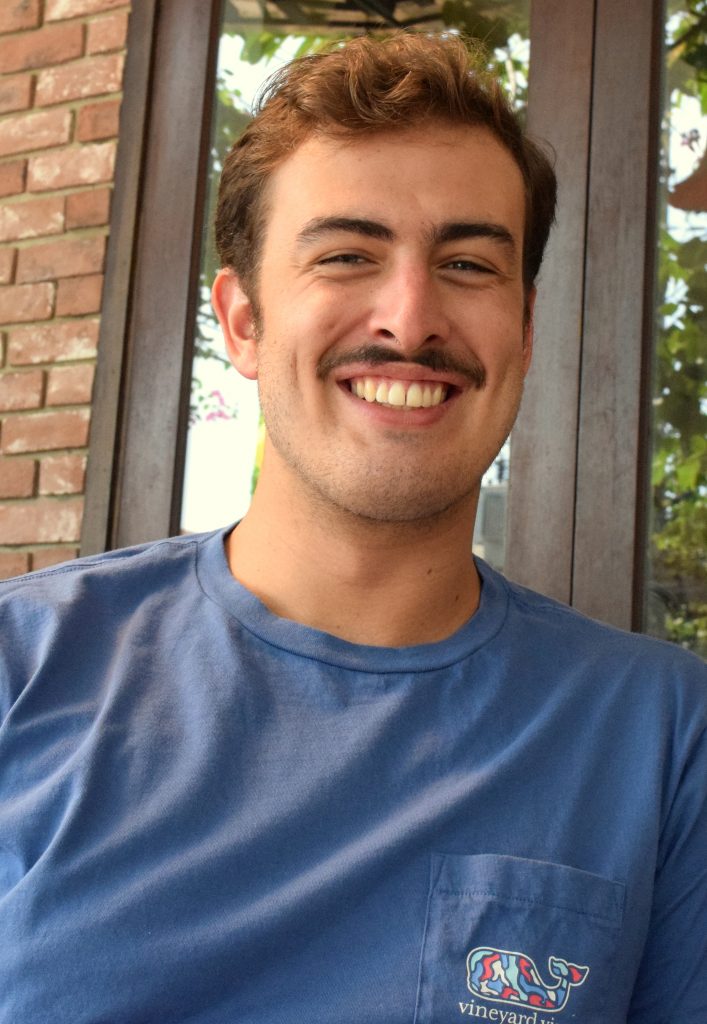 I live right behind Balance and if I walk down for 50 meters, turn left and walk 20 meters and then turn right again for another 50, I get to the lake. And I really like that spot because that’s really where old time meets new tourism time and big money. And it’s really fun to walk along that area because you walk through, for example, the old fishermen standing in the water fishing and throughout it gets more touristy and the lights are brighter and it’s cleaner. One of the biggest things that hit me when I walk through that area is the pollution: The river is dirty and there is plastic everywhere, especially down by the riverside with dead fish washed ashore. And I think these fishermen are not involved in tourism because fishing for them is like a generation job that maybe their fathers, grandfathers also did. It’s their way of knowing life before all this tourism stuff came to Hoi An. And because of this I think tourism is being developed in a very greedy way here. Like, let’s get as many people and tourists here as possible, and I feel like this new modern tourism is crashing with the old time Vietnam.
I live right behind Balance and if I walk down for 50 meters, turn left and walk 20 meters and then turn right again for another 50, I get to the lake. And I really like that spot because that’s really where old time meets new tourism time and big money. And it’s really fun to walk along that area because you walk through, for example, the old fishermen standing in the water fishing and throughout it gets more touristy and the lights are brighter and it’s cleaner. One of the biggest things that hit me when I walk through that area is the pollution: The river is dirty and there is plastic everywhere, especially down by the riverside with dead fish washed ashore. And I think these fishermen are not involved in tourism because fishing for them is like a generation job that maybe their fathers, grandfathers also did. It’s their way of knowing life before all this tourism stuff came to Hoi An. And because of this I think tourism is being developed in a very greedy way here. Like, let’s get as many people and tourists here as possible, and I feel like this new modern tourism is crashing with the old time Vietnam.
Malin, 22, Sweden
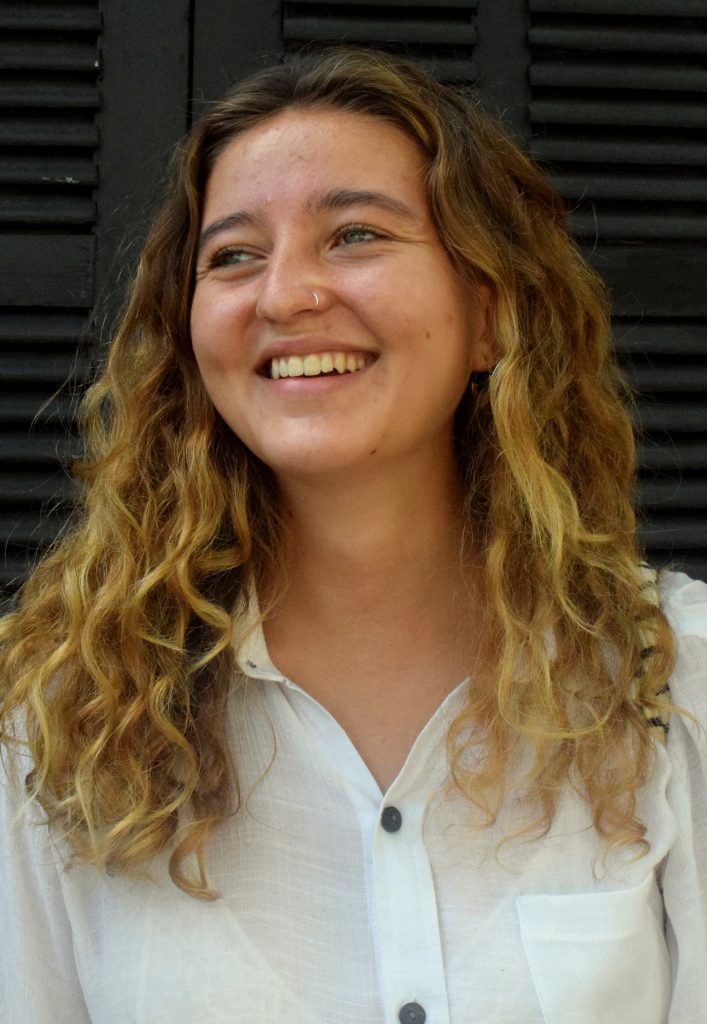 I was looking for a place to stay and I had a contract with this person and I was really keen to move in because they have a really Vietnamese home and that’s what I wanted to experience. But it didn’t work out so I was kind of homeless. It stressed me out and I decided to just hit the road and start looking. I walked into an area which I really like in the old town. It’s close to the Japanese bridge but a little beyond and not where most tourists would go. So I walked around and there was this lady sitting outside her house and she just said “Hi” to me and I looked at her and she kind of invited me in, making a gesture to like “Come in!”. I did and we ended up talking and she didn’t speak English but used signals and body language and stuff. She gave me some tea and I guess that’s the moment when I felt like, well, when you’re kind of stressed about something and you feel like… I don’t know what I’m trying to say but it reminded me that if we help each other out and show compassion, that’s pretty much all we need, even for a homeless like me (laugh). It brings you back to yourself even if you’re stressed and you think it’s the end of the world. In the end my problem was sorted out. She gave me tea and she kind of calmed me down. Her sister came later on and she spoke a little English and I told her I was looking for a place to stay. Through her connections, we ended up asking around. I feel like it’s a very Vietnamese way of solving problems. And within an hour they found this other family who had a room which I could stay. I find this such an amazing experience.
I was looking for a place to stay and I had a contract with this person and I was really keen to move in because they have a really Vietnamese home and that’s what I wanted to experience. But it didn’t work out so I was kind of homeless. It stressed me out and I decided to just hit the road and start looking. I walked into an area which I really like in the old town. It’s close to the Japanese bridge but a little beyond and not where most tourists would go. So I walked around and there was this lady sitting outside her house and she just said “Hi” to me and I looked at her and she kind of invited me in, making a gesture to like “Come in!”. I did and we ended up talking and she didn’t speak English but used signals and body language and stuff. She gave me some tea and I guess that’s the moment when I felt like, well, when you’re kind of stressed about something and you feel like… I don’t know what I’m trying to say but it reminded me that if we help each other out and show compassion, that’s pretty much all we need, even for a homeless like me (laugh). It brings you back to yourself even if you’re stressed and you think it’s the end of the world. In the end my problem was sorted out. She gave me tea and she kind of calmed me down. Her sister came later on and she spoke a little English and I told her I was looking for a place to stay. Through her connections, we ended up asking around. I feel like it’s a very Vietnamese way of solving problems. And within an hour they found this other family who had a room which I could stay. I find this such an amazing experience.
Ellen, 22, Sweden
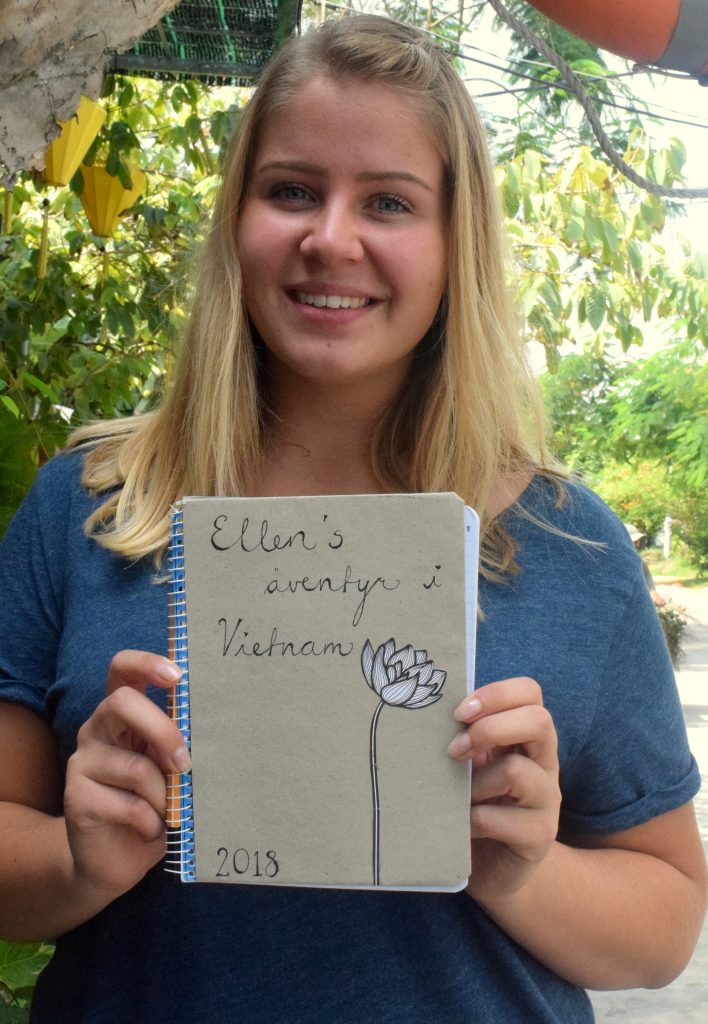 I got this notebook from a friend before I came here. She told me to write everything down because you’re gonna forget it otherwise. And when I look back at my first impressions of Vietnam, it struck me how incredibly fast opinions can change. For example here it says (point to a page of the notebook) that my very first impression was that the men who worked at the airport had funny hats. And my second impression while riding the taxi to Hoi An was how nice everything looked. This made me rethink my own prejudices about the country. I was disappointed with myself because I studied Anthropology before and one of the main concepts there is cultural relativity, which means you should look at new impressions in a new cultural context based on their view of things so as not to bring your own prejudices and your own view and judge other things from that. And I was just disappointed with myself because I didn’t have that in mind while coming here. But it also makes me really grateful that I got that realization. I was expecting Vietnam to be like, you know, poor and without any fancy buildings or anything. And then the fact that I was surprised by what I saw coming here, that I was ashamed afterwards, that I got the reaction, I am so thankful for that because I think many people don’t reflect over these types of things. And to learn from a new situation you really have to understand it first, so it’s important to reflect.
I got this notebook from a friend before I came here. She told me to write everything down because you’re gonna forget it otherwise. And when I look back at my first impressions of Vietnam, it struck me how incredibly fast opinions can change. For example here it says (point to a page of the notebook) that my very first impression was that the men who worked at the airport had funny hats. And my second impression while riding the taxi to Hoi An was how nice everything looked. This made me rethink my own prejudices about the country. I was disappointed with myself because I studied Anthropology before and one of the main concepts there is cultural relativity, which means you should look at new impressions in a new cultural context based on their view of things so as not to bring your own prejudices and your own view and judge other things from that. And I was just disappointed with myself because I didn’t have that in mind while coming here. But it also makes me really grateful that I got that realization. I was expecting Vietnam to be like, you know, poor and without any fancy buildings or anything. And then the fact that I was surprised by what I saw coming here, that I was ashamed afterwards, that I got the reaction, I am so thankful for that because I think many people don’t reflect over these types of things. And to learn from a new situation you really have to understand it first, so it’s important to reflect.
-Khanh-
